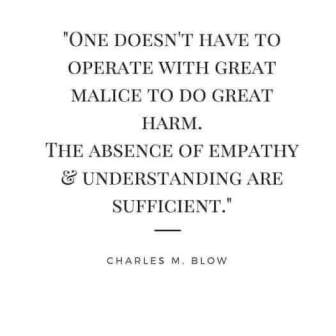What’s the Problem?
Through my myriad of experiences over many years, my eyes have been opened to the astounding and vast diversity of people. Specifically, as a teacher and parent, I’ve been privileged to meet and form relationships with people who experience the world in a way that is different from most because of disability. Brilliant minds housed in a body that requires a wheelchair for mobility. Caring and loving souls who are unable to communicate through words. Minds affected by mental illness that see parts of our world that are hidden to most.
I have also observed that, instead of being recognized for their individual and unique gift to our world, they are dismissed because they don’t move, act, speak, or function in a way that is “normal”. Simply put this is ableism, a set of beliefs and practices that devalue and discriminate against people with disabilities. It is rooted in the assumption that disabled people need to be “fixed”.
I realize we have come to these attitudes through centuries of wrong and often dangerous ways of thinking. The result is a black and white view that there is only one way to be human, that is, without defects. In the past, individuals with a disability were believed to be cursed or evil. They were pitied and infantilized. They were sent to institutions and never spoken of again. The culminating belief of eugenics was used to justify horrific and abhorrent treatment of humans.
Developments in medicine, science, and technology have made it possible for people with a disability to live longer lives and to participate more fully in society.
But old attitudes continue.
I’ve heard many people with a disability comment that they’ve had to learn to live in a world that isn’t built for them. Spend a day with them and you quickly realize how true it is. To add insult to injury, the burden mostly falls on them to constantly ask for help or an accommodation that makes their access to education, employment, leisure, travel, and sport possible.
And they have been asking.
For a long time.
Despite the repeated requests, they are met with the same excuses time and time again.
- It’s too expensive.
- It takes too much time.
- It is simply too inconvenient.
And they are disregarded over and over.
To all of this I must ask: What if people with disabilities aren’t the problem? What if we are?
Because we have failed . . .
- To erase the belief that someone is “less than” because they have a disability.
- To understand that we have something to learn from each other, including those who are different from us.
- To think creatively about inclusion and ask, “How can we make it possible for everyone to have an opportunity?”
- To recognize the inherent value of every single person.
We are all imperfect. We view the world through our own lens first. We lack the curiosity to ask someone who is different from us what it is like to experience the world from their perspective. We are not inclined to think about diverse views and experiences. I understand this, but I can’t accept it.
I grieve for what the world is missing because we deny people with disabilities the dignity of choice and agency.
Ableism is robbing us all.
I am furious. Aren’t you? I hope so, because eradicating ableism is everyone’s responsibility.

If you have no idea what I’m talking about, I highly recommend the documentary Crip Camp, which shares the story of the 504 Sit-In, and how it led, eventually, to the Americans with Disabilities Act (ADA).
I also suggest these websites to learn more about ableism and disability rights.